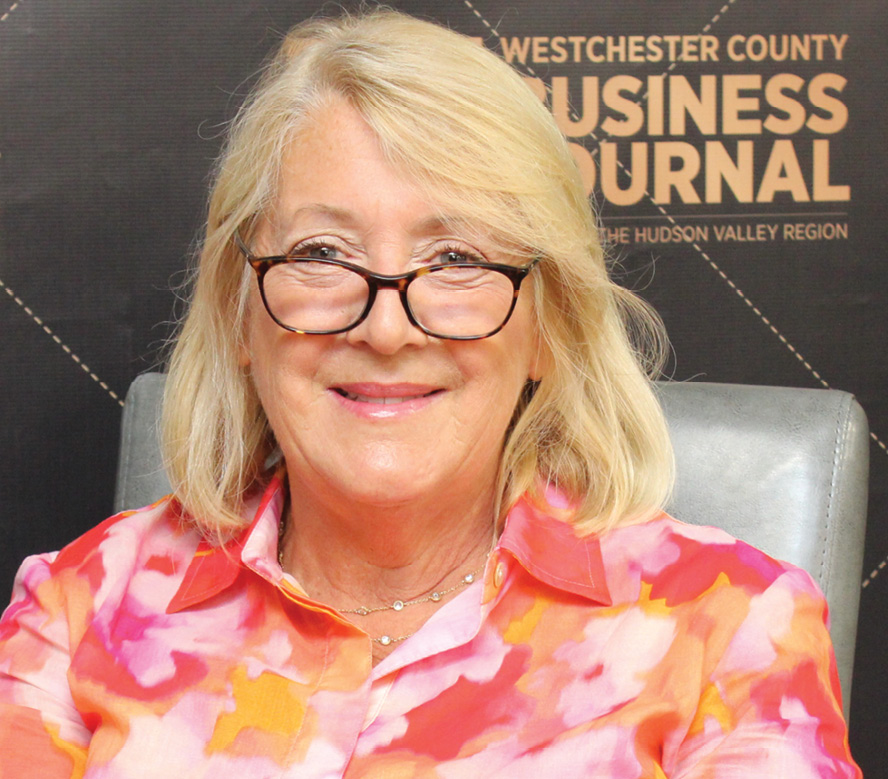Judge Linda Jamieson expects more court cases in Covid aftermath
The Commercial Division in Westchester of the New York State Supreme Court is seeing an increase in new cases as a result of the Covid-19 pandemic, according to Judge Linda S. Jamieson.

“I have had a lot of employment restrictive covenant breaches,” she said, cases in which someone was forced to leave a business because of the pandemic’s effects and then could not work elsewhere because of a restrictive covenant in an employment contract.
“Right now I think we’re going to be seeing a lot more cases coming in,” Jamieson said during a conversation with Attorney Jeffrey Buss of the firm Smith Buss & Jacobs LLP that took place in the newsroom of the Business Journal.
Jamieson said some of those cases already coming in involve partnerships that are breaking up, in part due to the strain of the pandemic.
“There’s not the money that they had. There’s been a lot of problems in holding out as long as they can. But I try to piece them back together if we can, to get them through this terrible time for everyone. Economically, I think, if we can ride it out it will be fine, it will come back full force,” Jamieson said.
Jamieson is one of two judges assigned to the court’s Commercial Division in the county. The other is Hon. Gretchen Walsh.
Jamieson was elected as a Justice of the Supreme Court in November 2002 and in January 2003 was sworn in. From June 1996 to January 2003 she had served on the Westchester County Family Court. Jamieson received her law degree from Pace University School of Law and earned her bachelor’s degree at Hofstra University. She is admitted to practice law in New York, Connecticut, New Jersey and Florida and the United States District Courts for the Southern and Eastern Districts of New York. Prior to her service on the bench, she had been a trial attorney in private practice.
Buss asked Jamieson about the types of cases that are heard in the Commercial Division in addition to civil disputes in excess of $100,000 that often involve a breach of contract, breach of fiduciary duty, or shareholder issues.
“There are legal and accountant malpractice if it’s relating to a business transaction, so those type of cases do come in front of us,” Jamieson said. ”There are also insurance cases, to determine whether or not there’s insurance. Those are going to be flooding our courts I’m sure soon. There’s shareholders’ derivatives. But, any case that involves a business tort definitely is in us. And, as I call them, business divorces. A lot of business divorces. A breakup of partnerships or dissolutions of corporations, limited liability corporations, all of those types of cases come before the court.”
When Buss asked about how the court has been functioning during the pandemic, Jamieson said that the court has been doing all of its conferences using online video. She said some hearings have been held in the courthouse.
“I have limited my courtroom to eight people. That’s the only way I can socially distance everybody. We have everybody sitting in different areas and we have, of course, face masks, we have shields, we have everything and we have it sanitized,” Jamieson said. “I would say the lion’s share of the work has been online including mediation that we send people to.”
Buss pointed out that many contracts contain language specifying what should be done in event of disputes, such as a requirement for arbitration. He said that in his practice he has been recommending that people go to court rather than agree to arbitration.
Jamieson commented that arbitration became popular in part because the court system used to be backed up and it took such a long time for people to have their day in court. With the Commercial Division, however, cases are heard faster nowadays. Jamieson explained that it has its own rules that are separate and distinct from the rules in other parts of the court system and also has judges who have expertise in business matters. She said all she and Judge Walsh hear are commercial cases and they move them along comparatively quickly. She suggested that the parties to a contract could if they wished specify in the contract that disputes must be taken to the Commercial Division.
Jamieson said that the court has a panel of qualified people serving as mediators that attorneys can call upon to narrow issues and possibly resolve cases before a judge steps in. Mediation can help hold down the costs far below those of arbitration.
“Your honor, we have this tremendous judicial system here in the United States but is it always the best idea to run to court and fight there?” Buss asked Jamieson.
“No, it’s the worst idea,” she responded. “Obviously, you’re airing your laundry in the public; it is public. We do have confidentially agreements that are sometimes signed but once you’re in court it is a public arena so everybody is seeing the laundry aired between the parties and the shareholders and the litigants. Once you are in the court system it’s not your life. You don’t control it; the court is controlling it.”
Jamieson said that as the judge, she encourages the parties in a case to reach agreement and make the decision for themselves before it’s necessary for her to rule.
“It’s empowering to them,” Jamieson said. “If you leave the decision up to the court you’ve lost all power so that’s part of my philosophy when I deal with people who come in front of me. I try to get the power back to them.”